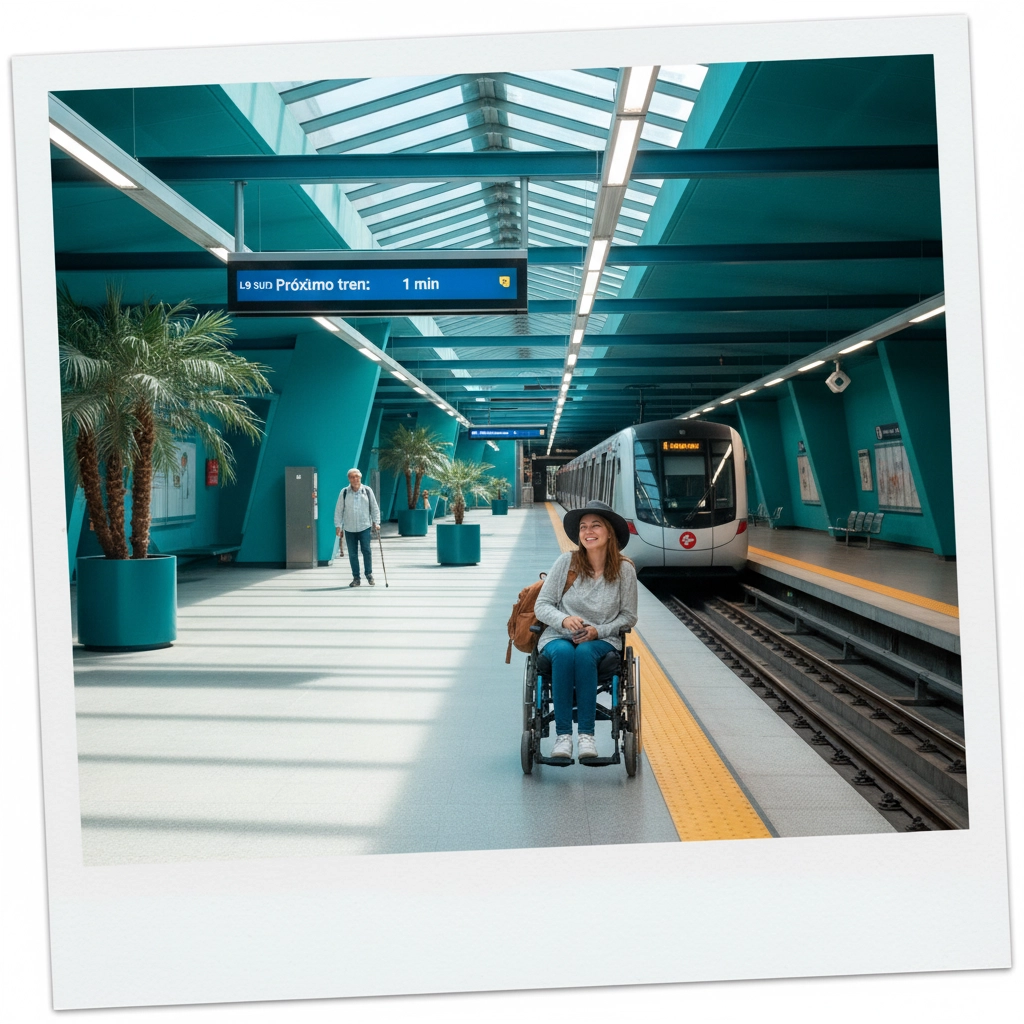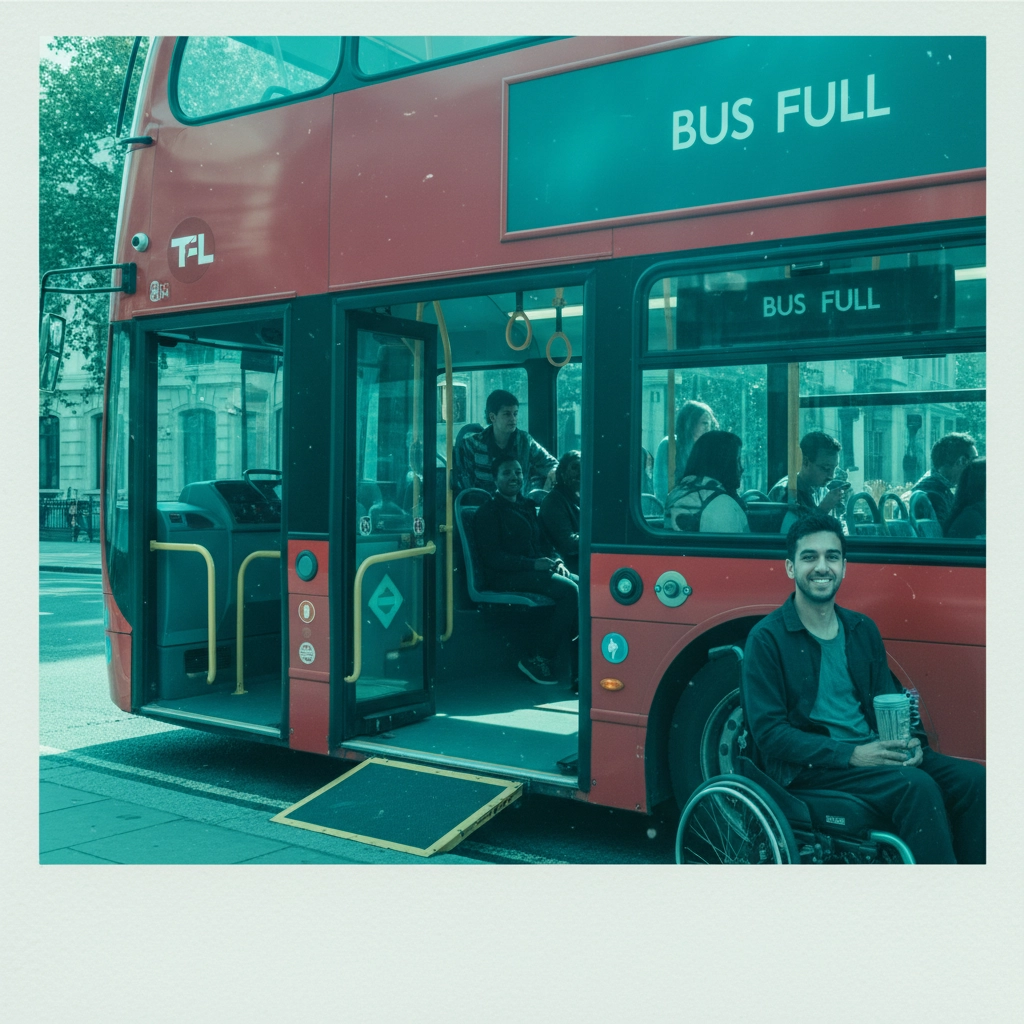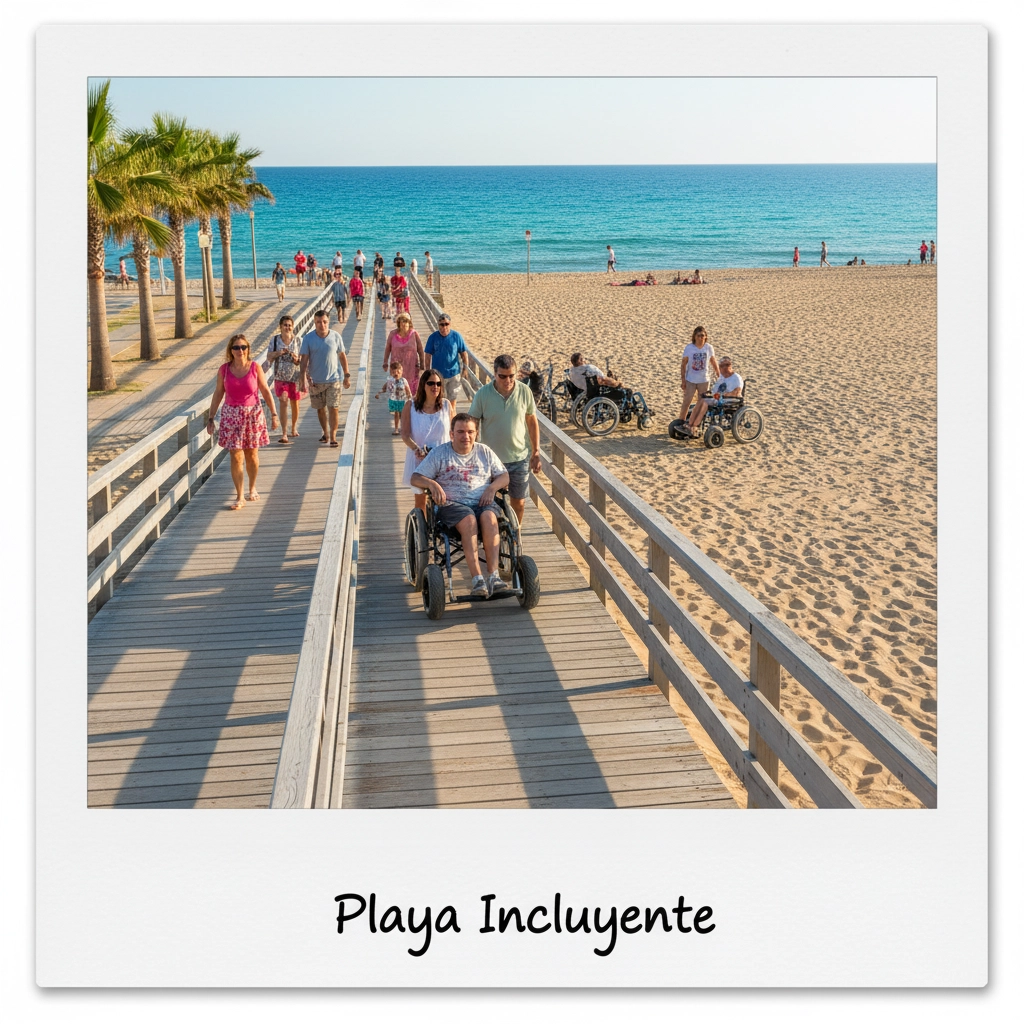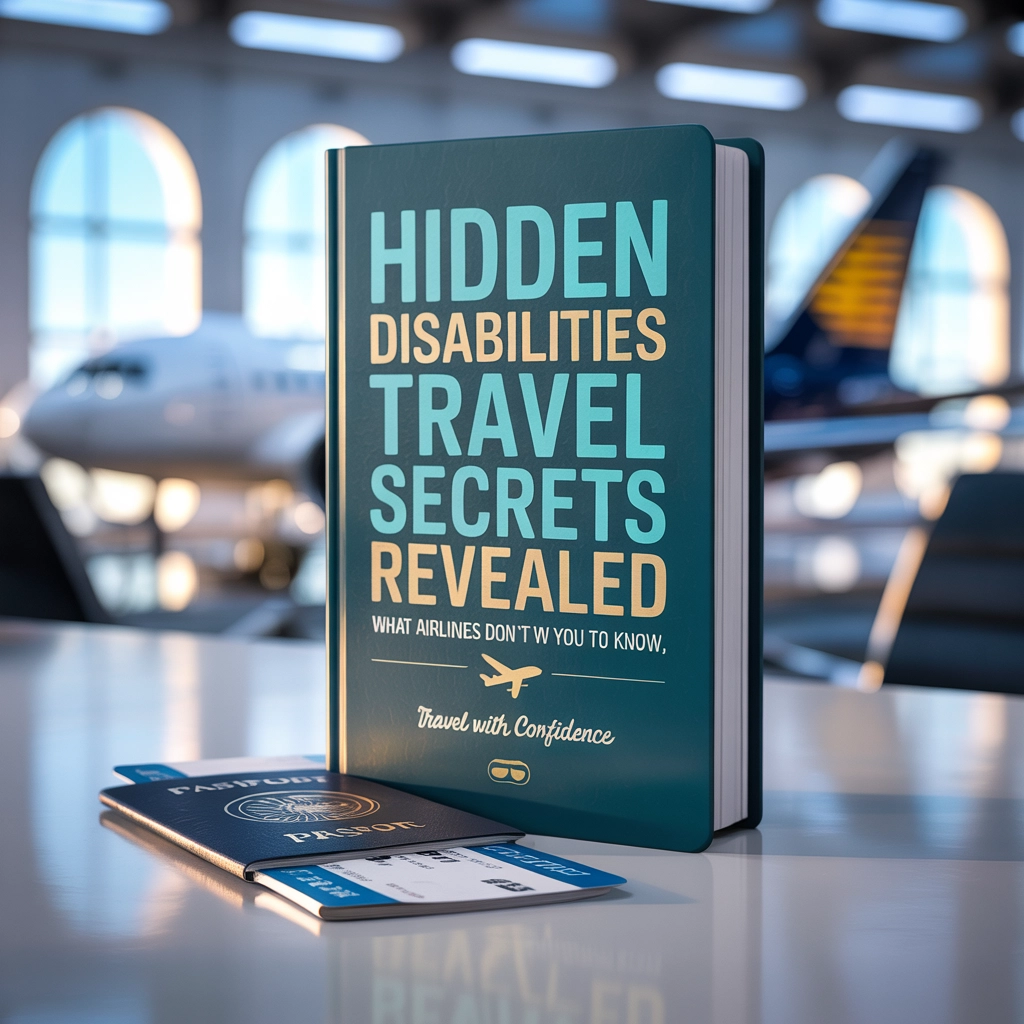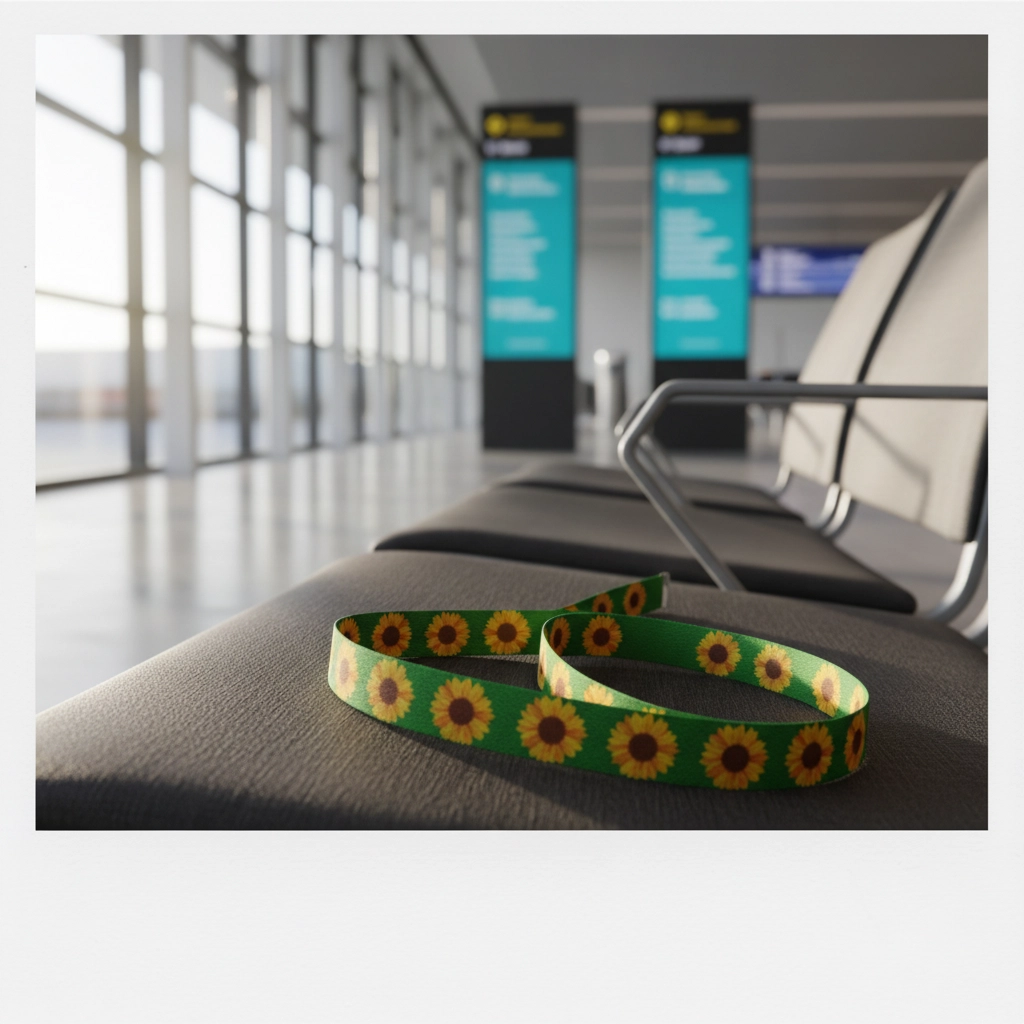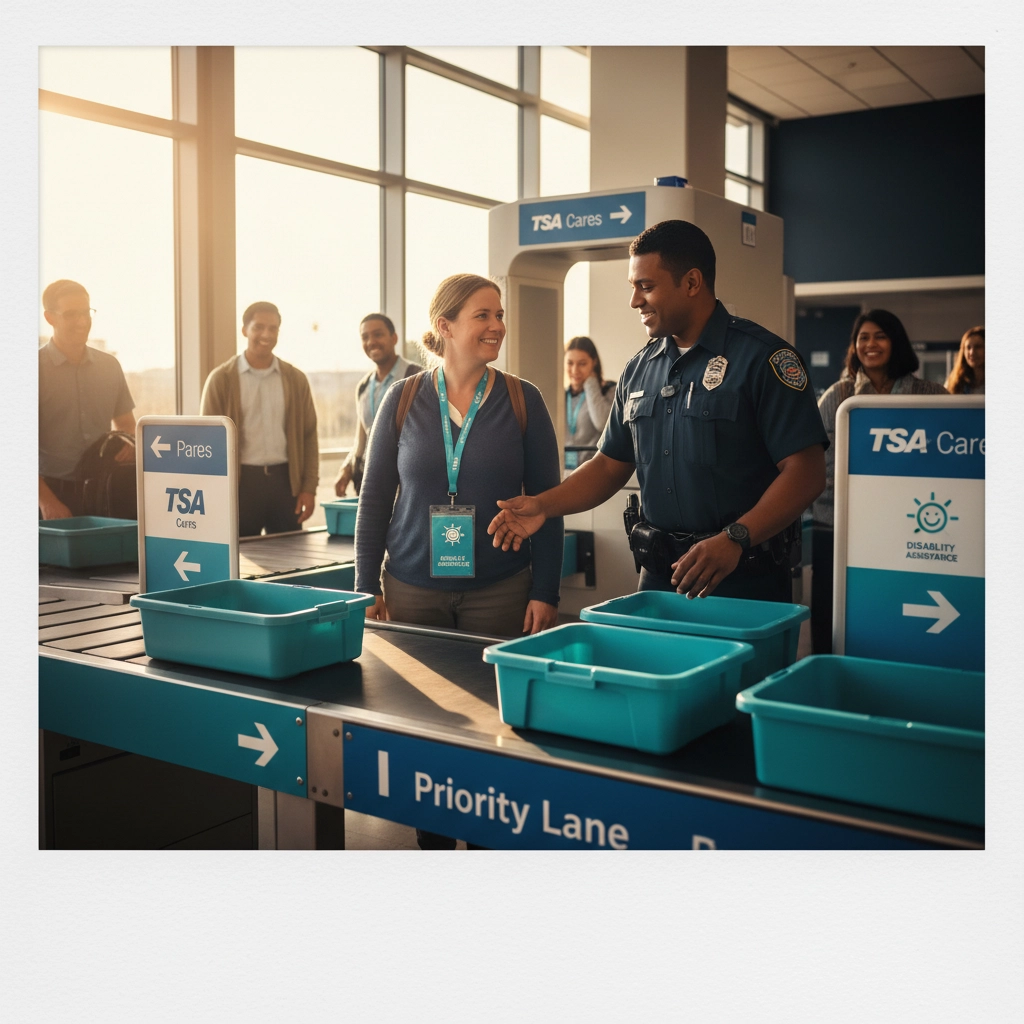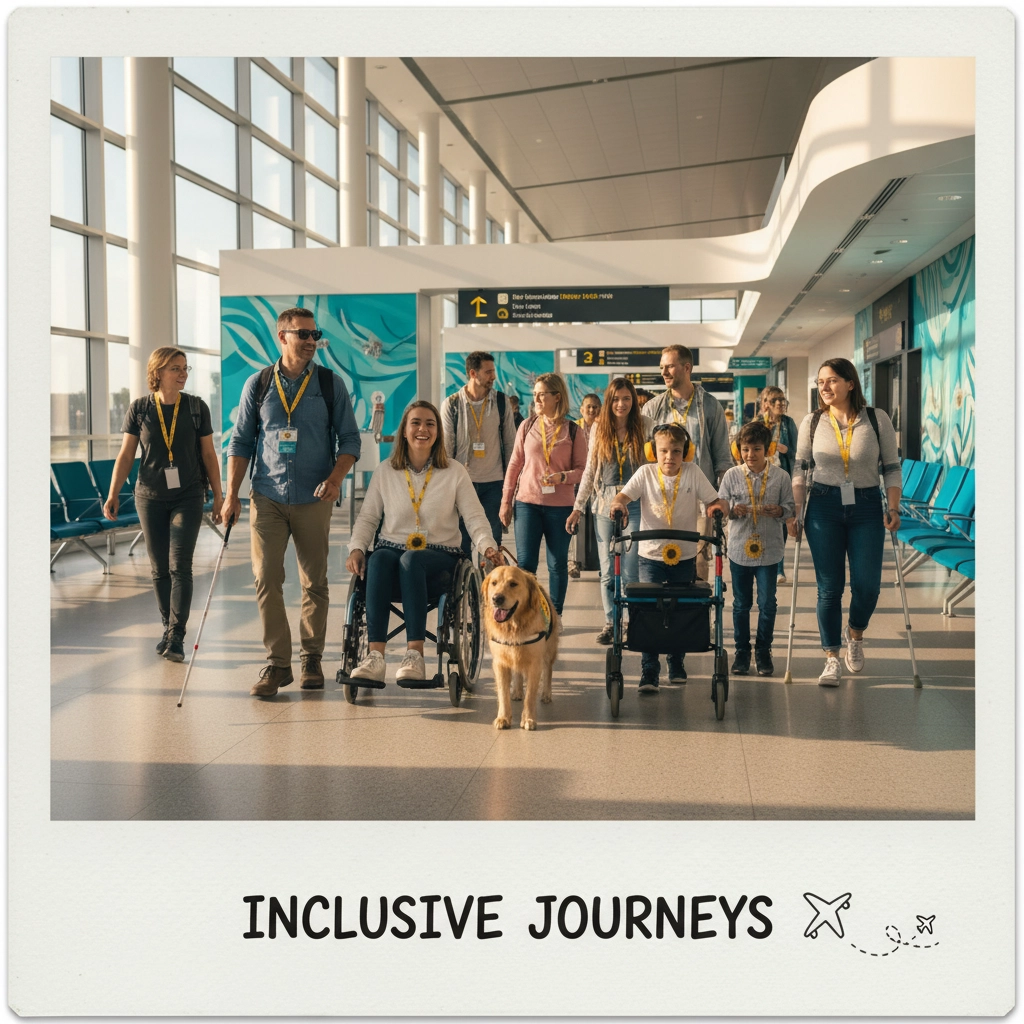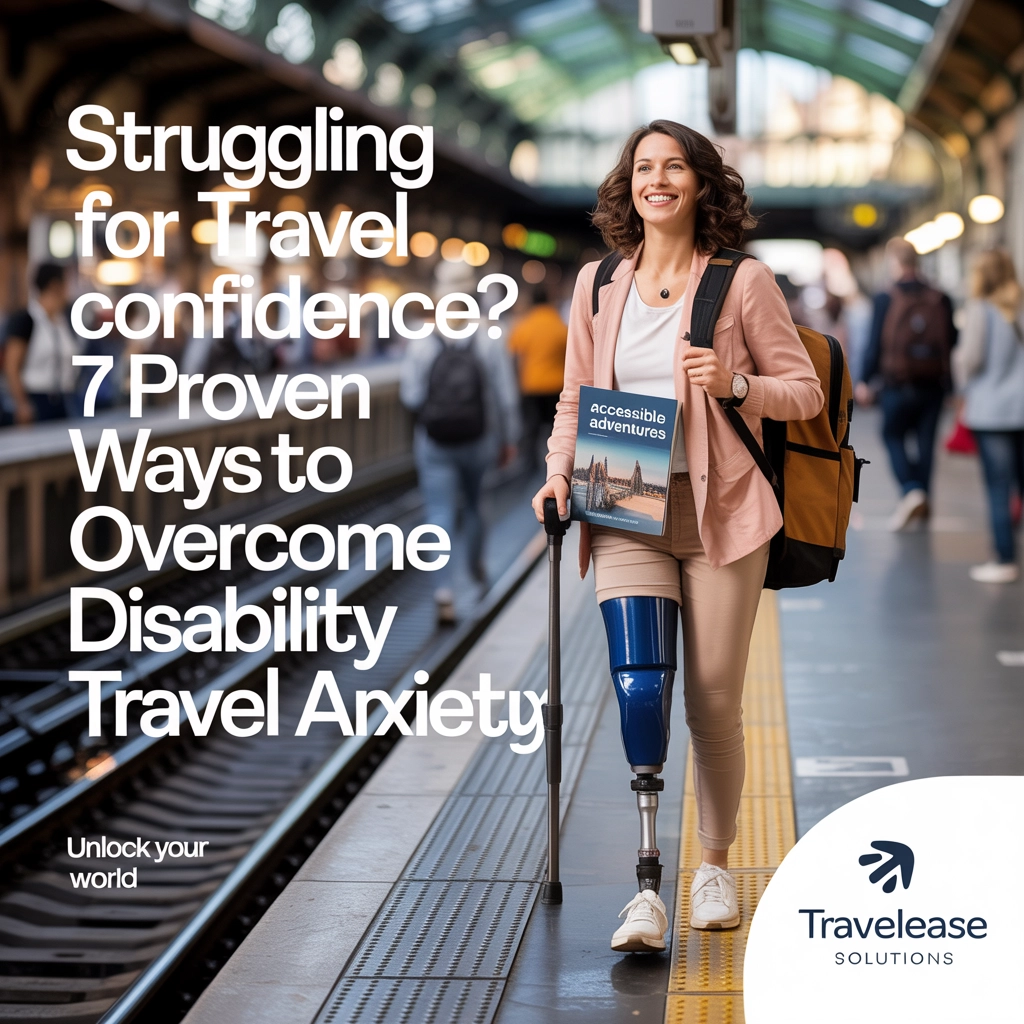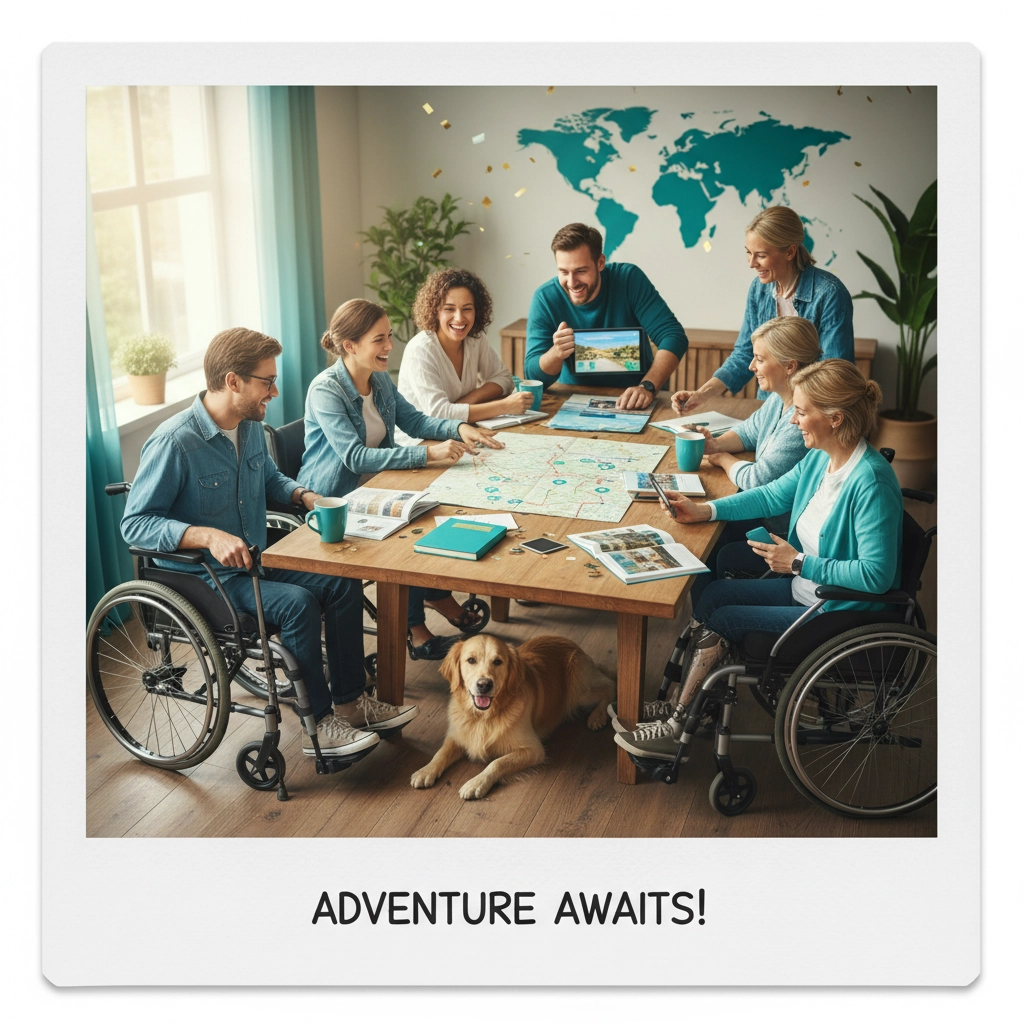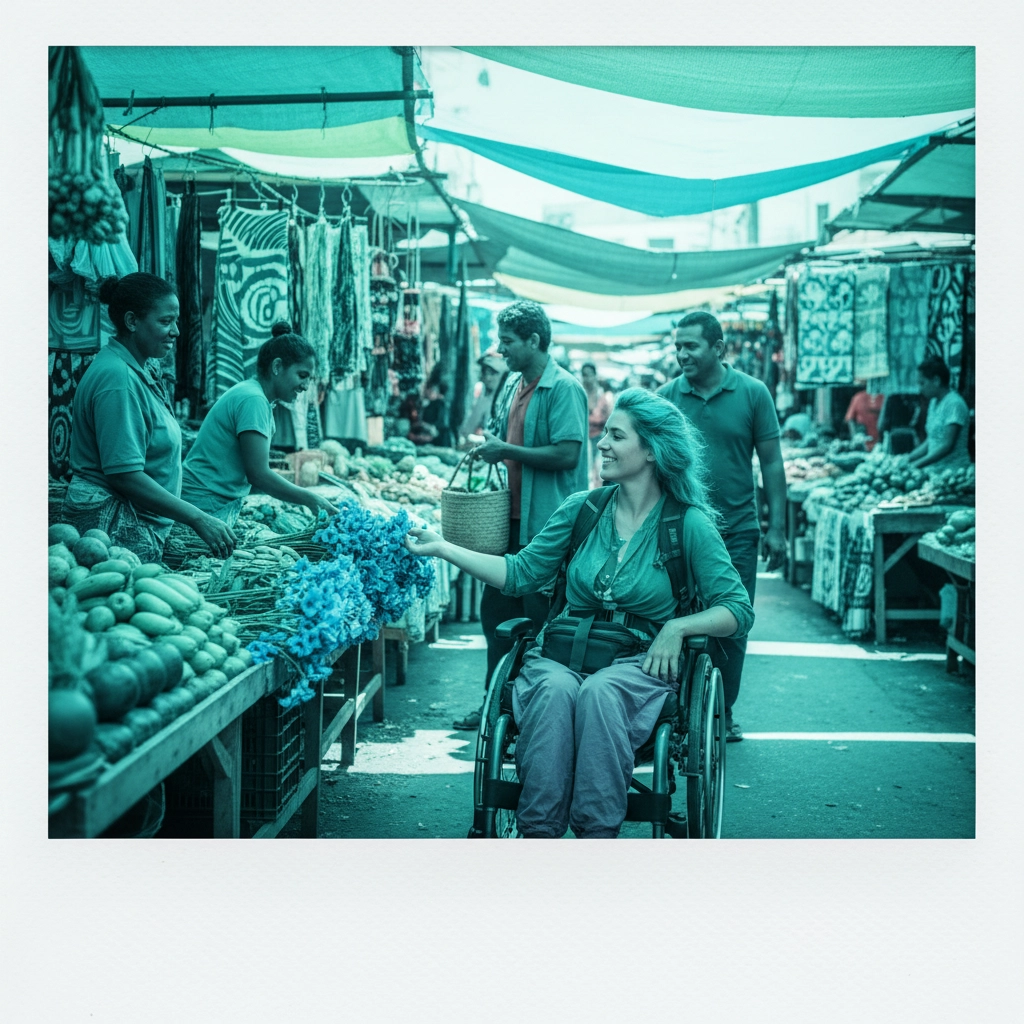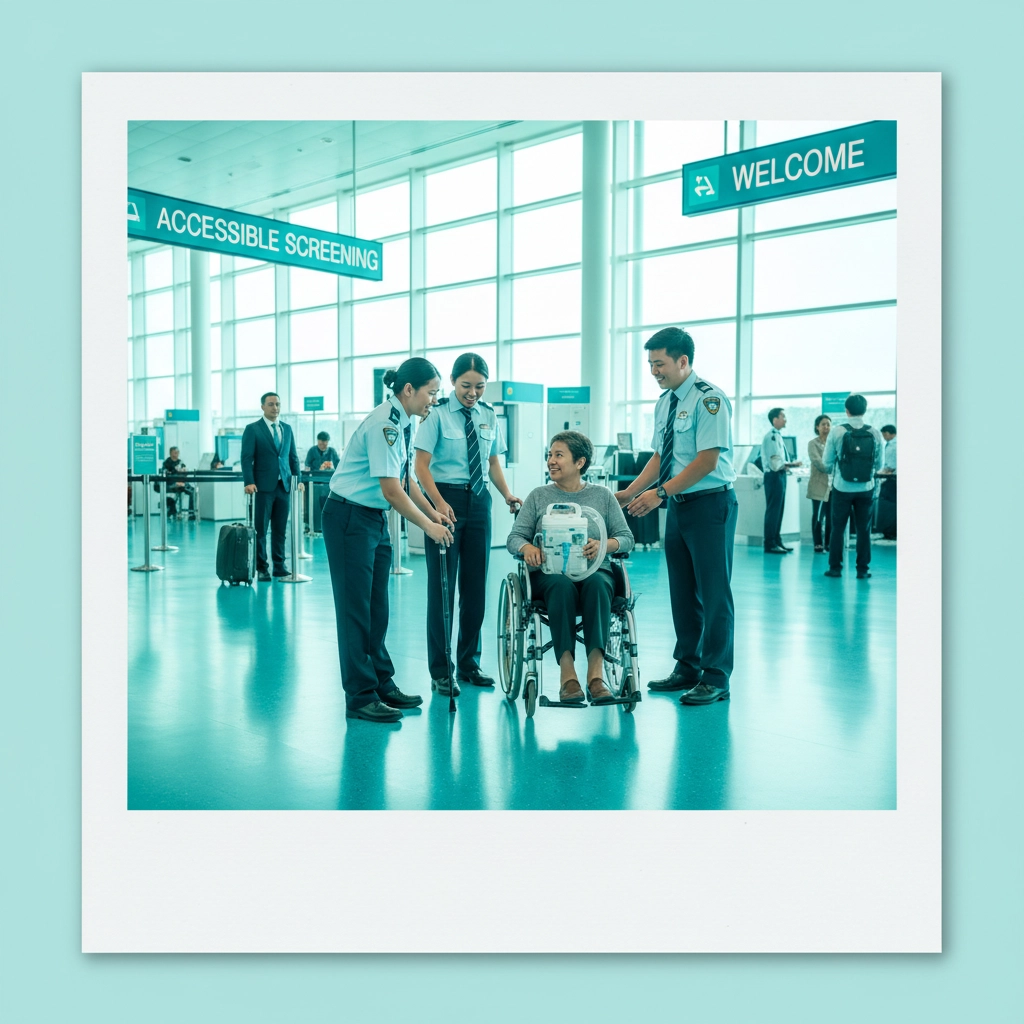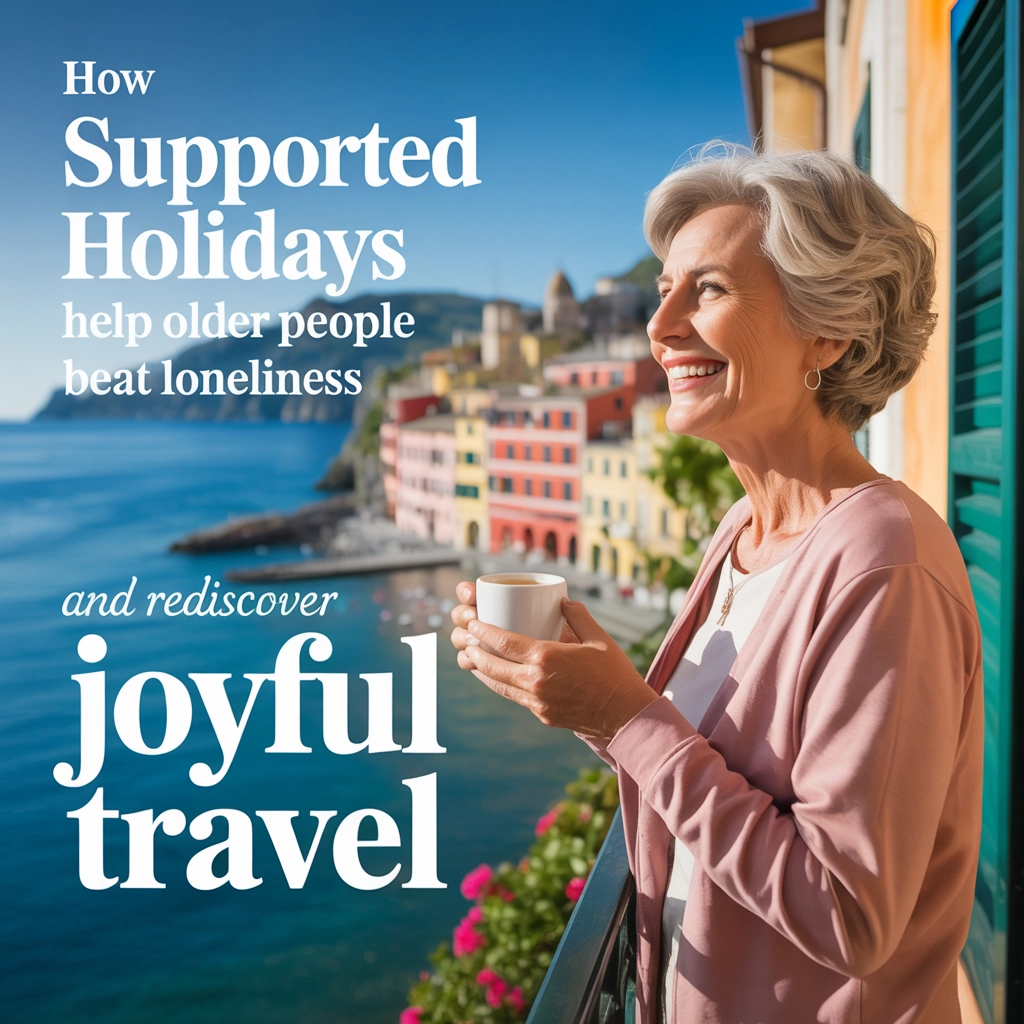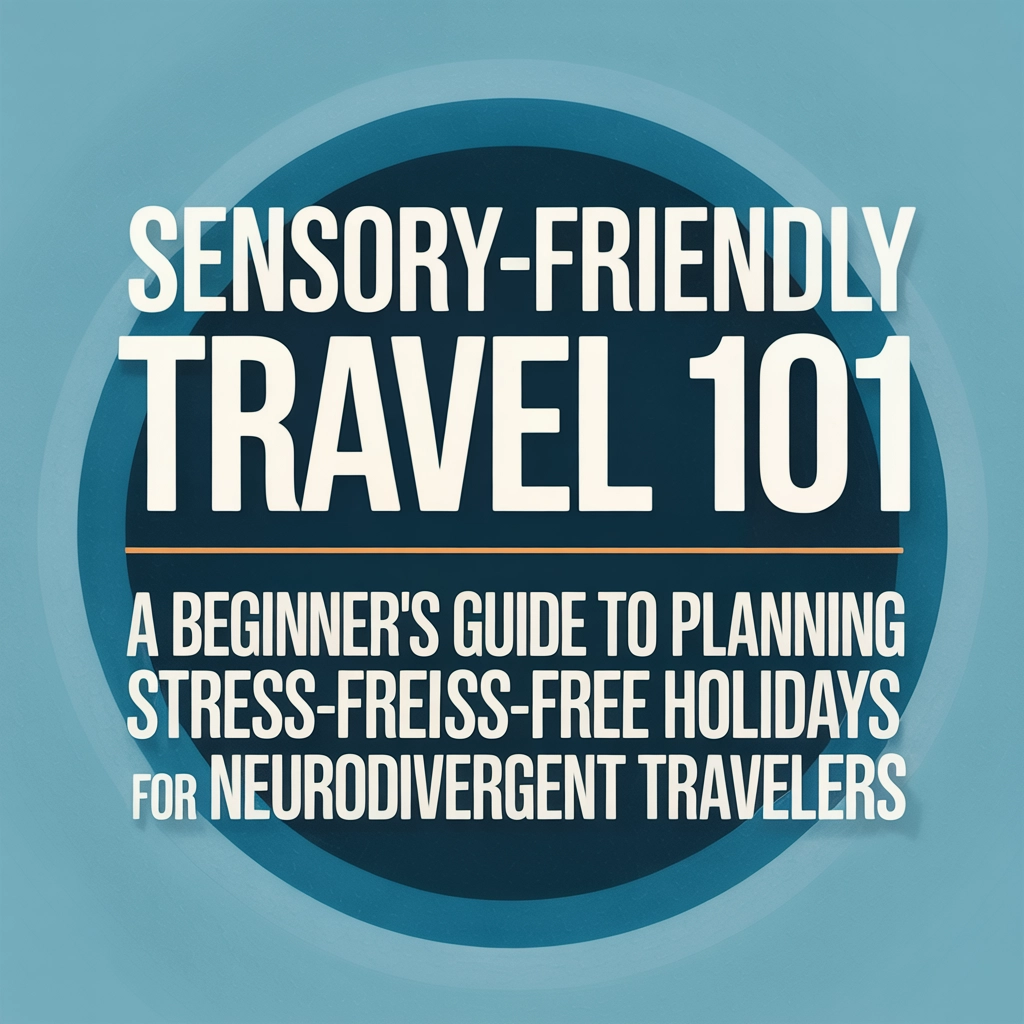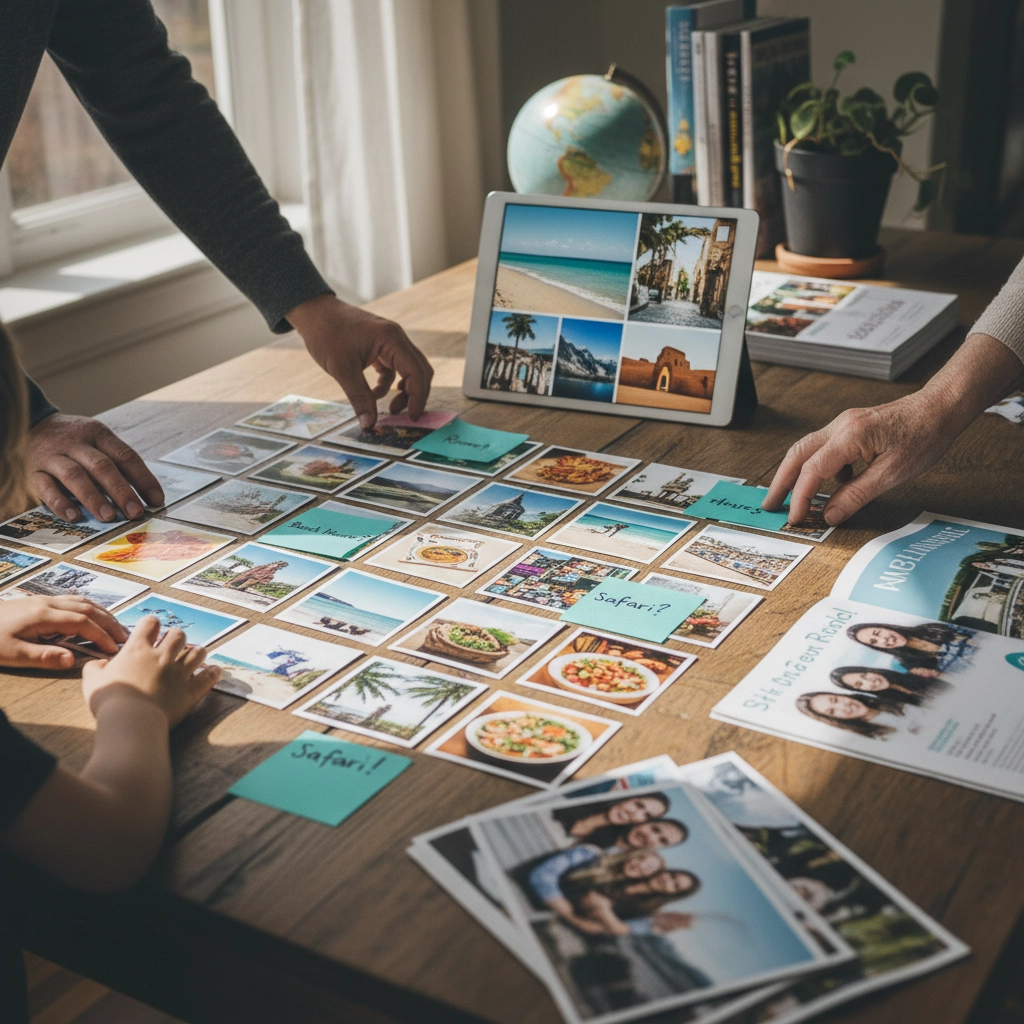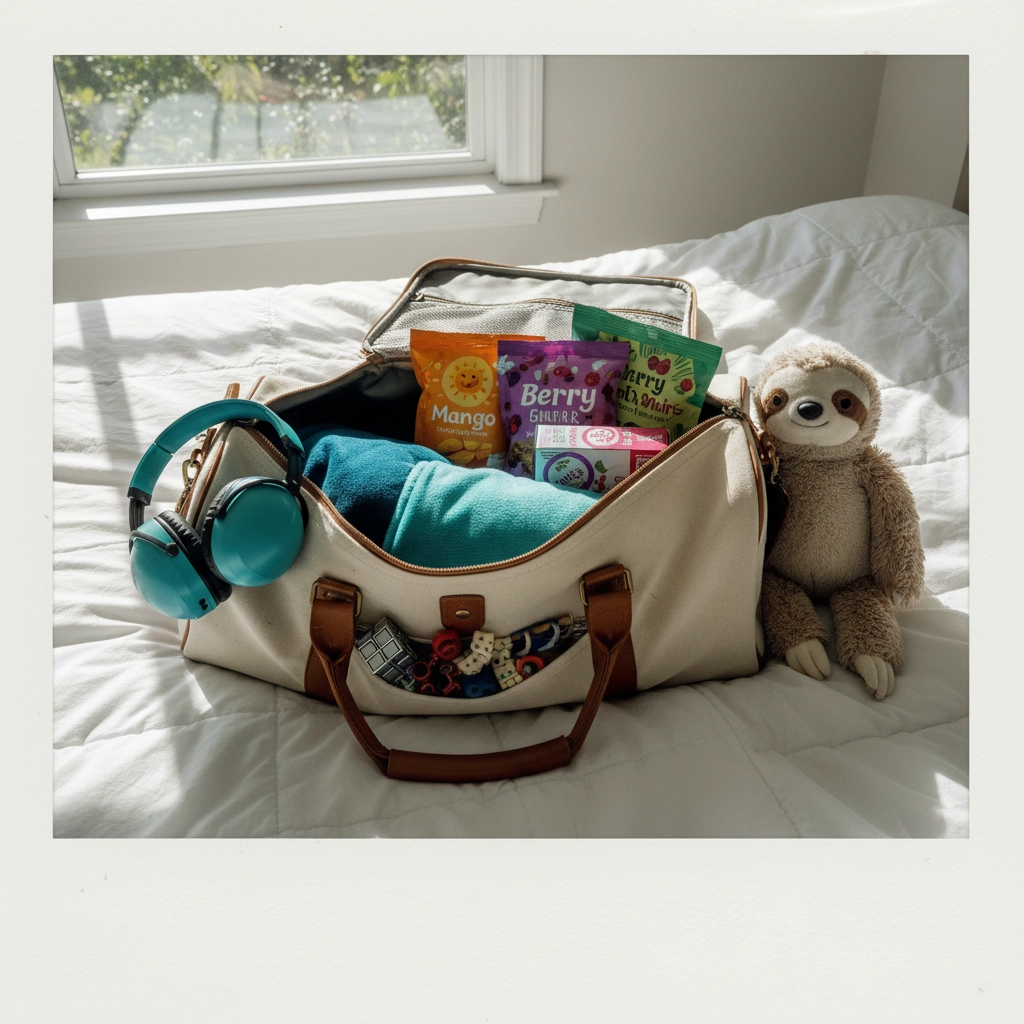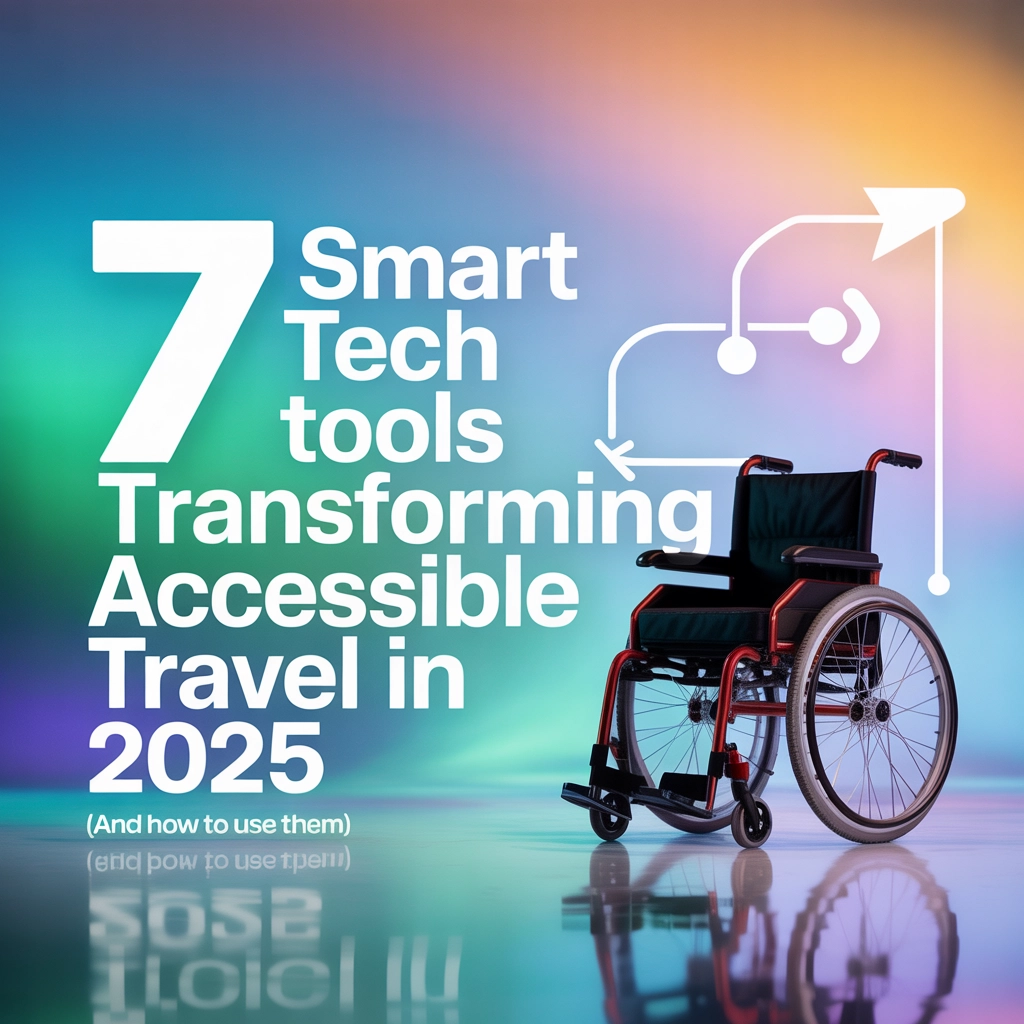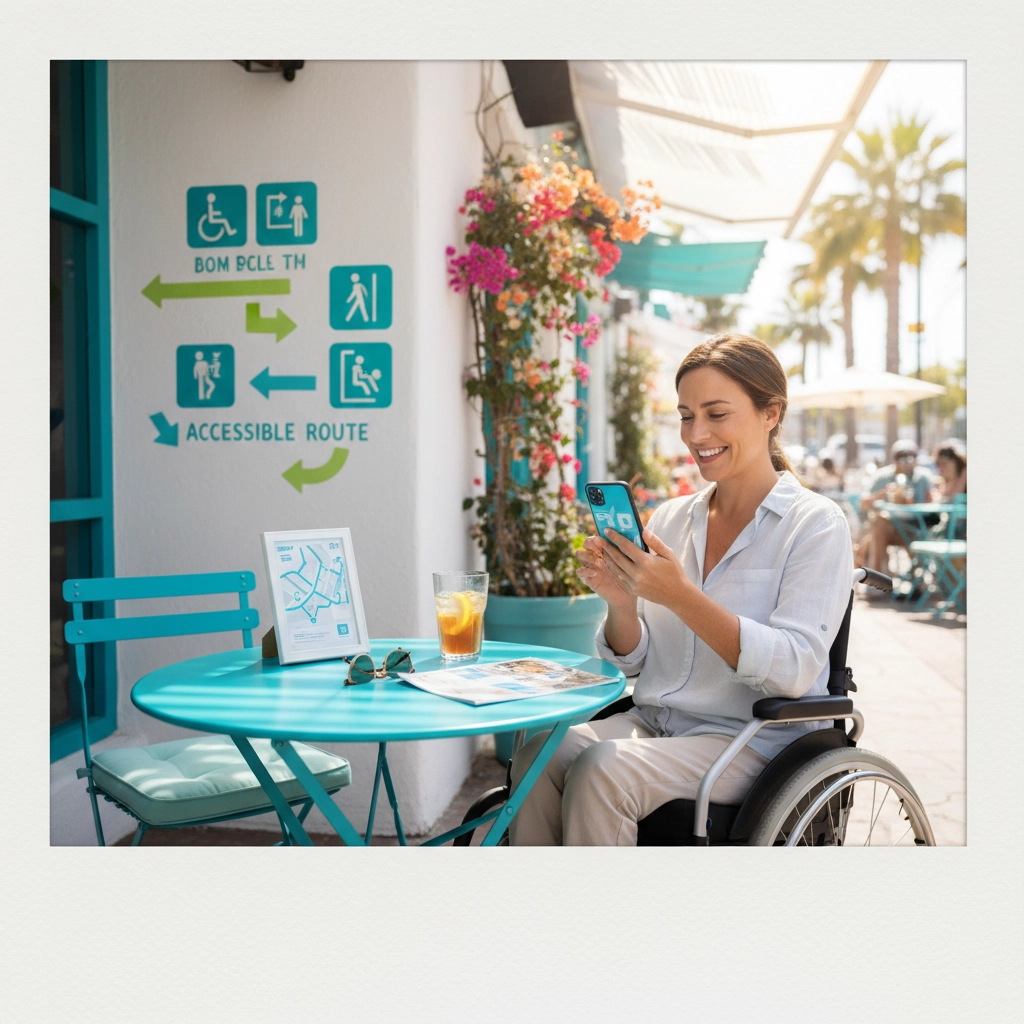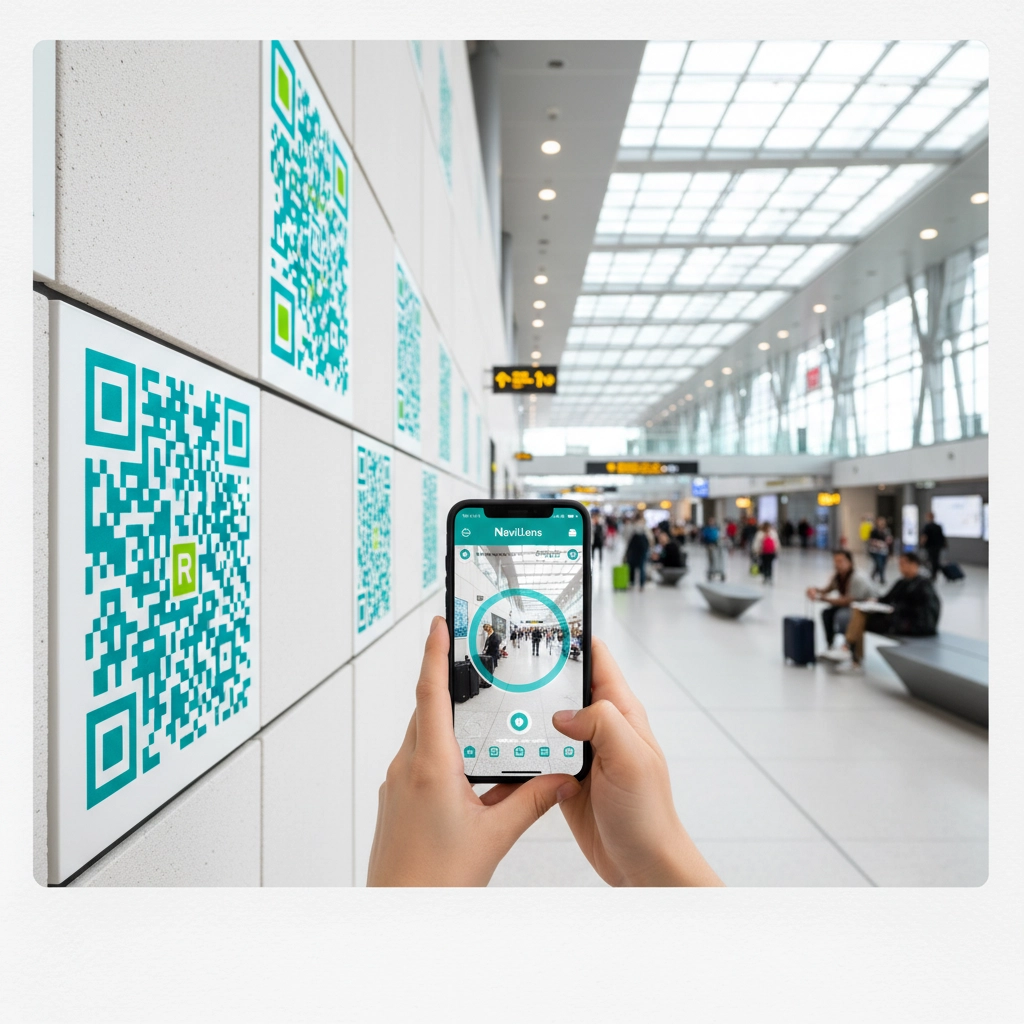Let's be honest – if you're a traveller with access needs, you've probably felt frustrated with traditional travel apps. They promise the world but often fall short when you need specific accessibility information, sensory support, or just want to know if a hotel room actually has the grab rails they claim to have. So are these apps dead? Not quite, but they're certainly not meeting everyone's needs.
The good news is that technology is catching up, and there are some brilliant new tools out there that are genuinely game-changing for accessible travel. We're talking about apps and gadgets that actually understand what you need, rather than just ticking boxes.
Why Traditional Travel Apps Miss the Mark
Most mainstream travel apps were designed with the "average" traveller in mind – whatever that means! They'll tell you a hotel is "accessible" but won't mention that the accessible room is 15 floors up and next to the noisy lift shaft, or that the restaurant has step-free access but the toilets are upstairs. Sound familiar?
These apps often lack the detail that makes the difference between a stressful trip and a brilliant one. They might show you the fastest route but not the one with the most accessible stations, or recommend a "quiet" café that turns out to be right next to a building site.
The thing is, everyone's needs are different, and traditional apps struggle with this beautiful diversity. What works perfectly for one person might be completely unsuitable for another – and that's perfectly normal.
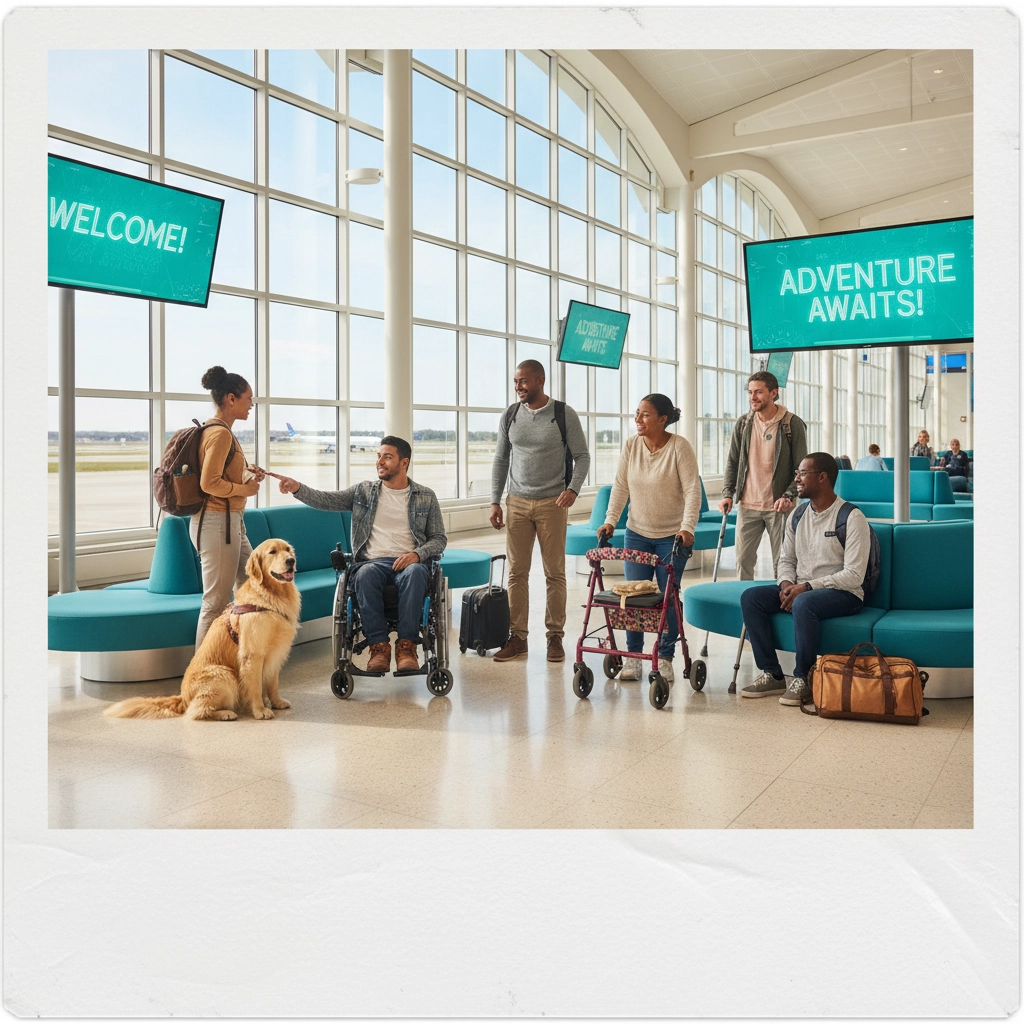
The 5 Game-Changing Tools Every Supported Traveller Should Know
1. AccessNow – Your Crowd-Sourced Accessibility Guide
This brilliant app turns every user into an accessibility reviewer. Real people with real access needs share detailed information about venues, transport, and attractions. Instead of vague "wheelchair accessible" labels, you get specifics: "Two steps at entrance, grab rails in toilet, staff very helpful."
What makes AccessNow special is its community approach. Users can ask questions and get answers from people who've actually been there. Planning a trip to Rome and wondering about the Colosseum's accessibility? Someone will have been there and shared their honest experience.
The app covers everything from step-free access to sensory-friendly spaces, and the information is constantly updated by the community. It's like having thousands of travel buddies looking out for you.
Check out Euans Guide - this was set up in Scotland and has content UK wide.
2. Be My Eyes – Real-Time Visual Assistance
This incredible app connects you with volunteers around the world who can help with visual tasks through your phone's camera. Need to check if your hotel room number matches your booking? Want to know what's on a menu that's only in another language? Or simply need help navigating an unfamiliar space?
Be My Eyes has specialized services for different needs, including partnerships with major companies to provide specific support. The volunteers are genuinely lovely people who are there because they want to help, and most calls are answered within seconds.
It's particularly brilliant for those moments when you just need an extra pair of eyes – whether that's reading small print, identifying colors, or getting your bearings in a new place.
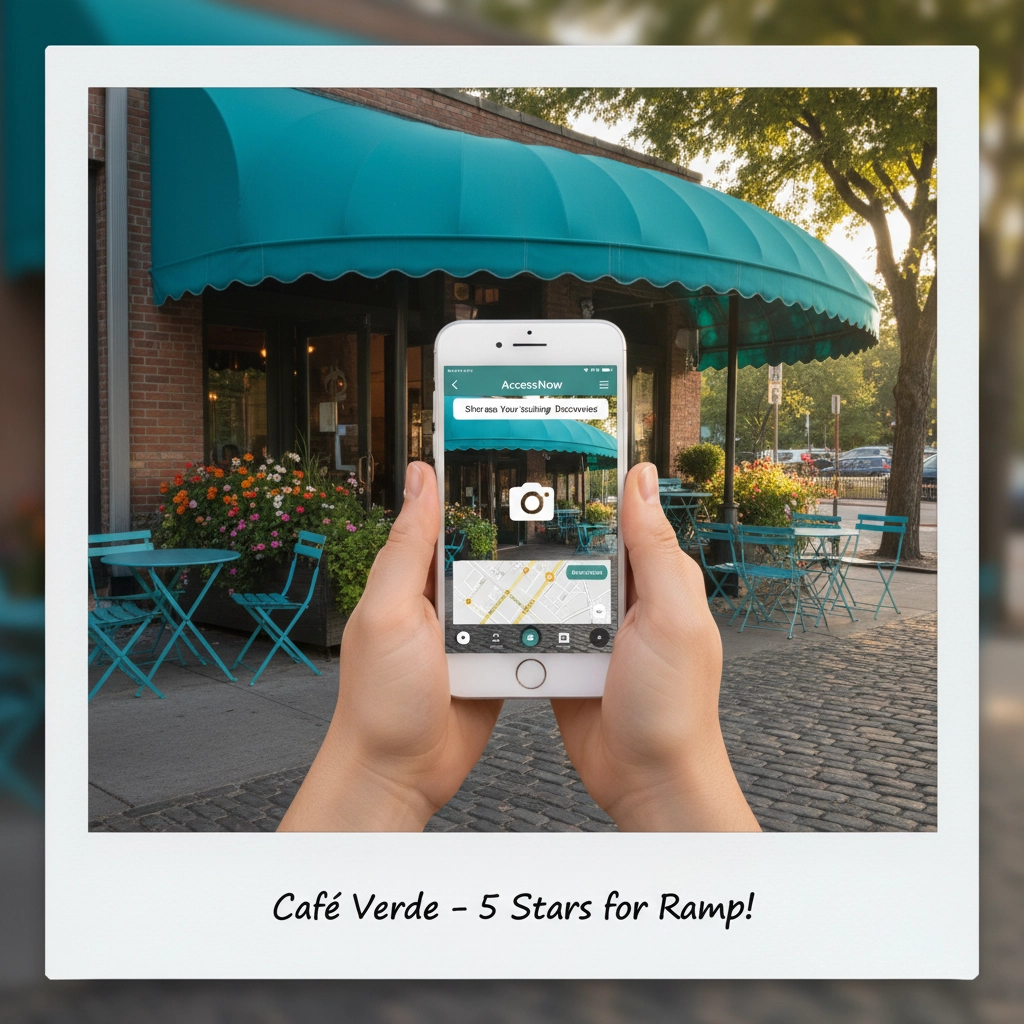
3. Citymapper – Navigation That Actually Gets It
While Google Maps tells you the quickest route, Citymapper understands that quickest isn't always best. This app provides detailed accessibility information for public transport, including which stations have lifts, where the accessible toilets are, and even which part of the train to board for step-free exit.
The app shows disruptions in real-time and suggests alternative routes when lifts are out of service. It also indicates crowd levels, so you can avoid the rush-hour crush if that's important for your comfort.
What's really clever is how it learns your preferences. Use step-free routes regularly, and it'll prioritize these in future suggestions. It's like having a local guide who remembers exactly what you need.
4. Ava – Live Conversation Transcription
Communication barriers can make travel stressful, whether you're deaf or hard of hearing, in a noisy environment, or dealing with strong accents. Ava provides real-time transcription of conversations, turning speech into text instantly on your phone.
The app works brilliantly in group conversations too, color-coding different speakers so you can follow who's saying what. It's perfect for restaurant orders, hotel check-ins, or just chatting with locals.
Ava also works offline for basic transcription, which is fantastic when you're somewhere with patchy wifi. Many users say it's transformed their confidence when travelling, removing that anxiety about missing important information.

5. Sensory Apps Suite – Managing Sensory Overload
This isn't just one app but a collection of tools designed to help manage sensory challenges while travelling. Apps like Noise & Sound Meter help you find genuinely quiet spaces, while others provide visual schedules and countdown timers for transitions.
Some apps offer noise-canceling features through your headphones, creating calm audio environments when spaces become overwhelming. Others provide social stories about specific travel situations, helping you prepare for what to expect.
The beauty of these tools is how they work together. You might use one app to identify a quiet café, another to communicate your order, and a third to manage any anxiety about trying somewhere new. It's like having a complete support toolkit in your pocket.
How These Tools Work Together
The magic happens when you combine these technologies. Imagine planning a day out: AccessNow helps you choose accessible venues, Citymapper gets you there via the most comfortable route, Be My Eyes helps you navigate any tricky bits, Ava ensures you don't miss conversations, and sensory apps keep you comfortable throughout.
Each tool fills a gap that traditional travel apps leave open. Together, they create a support network that adapts to your specific needs rather than expecting you to adapt to their limitations.
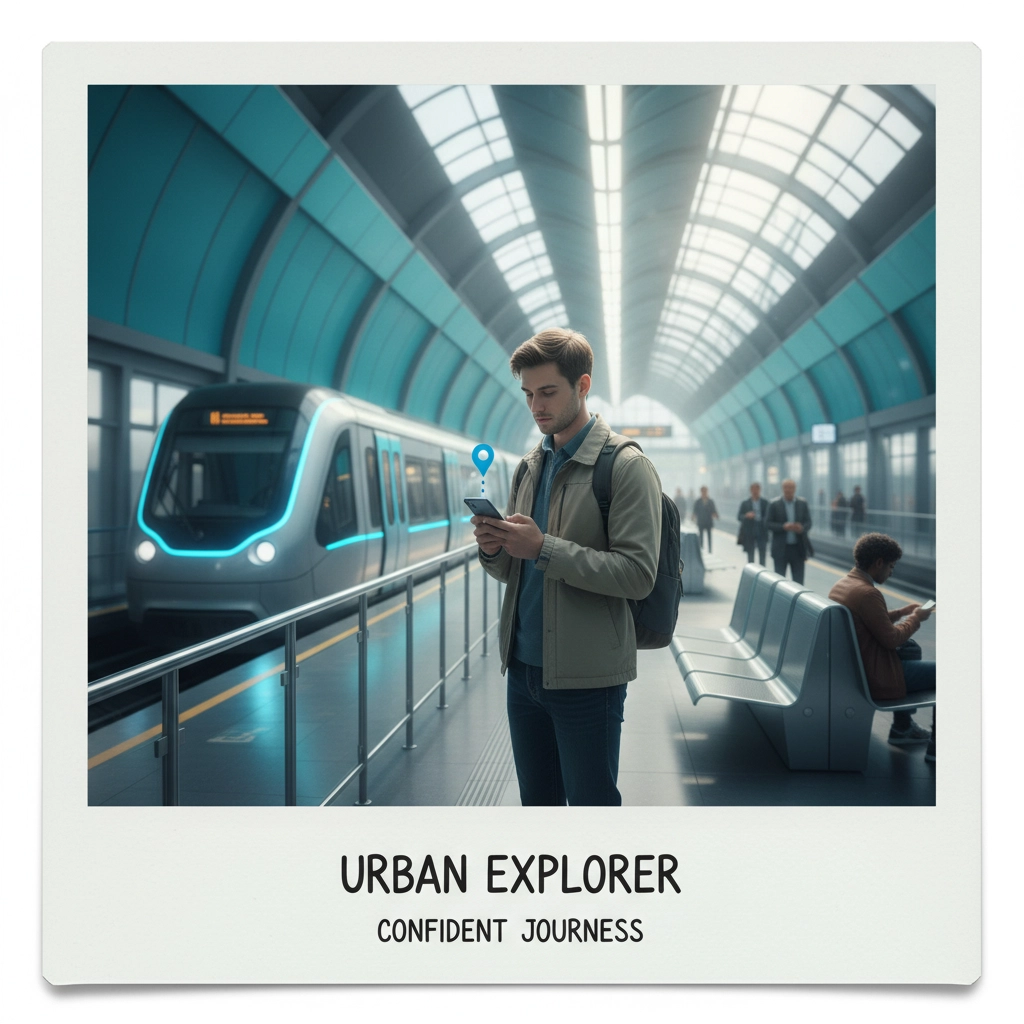
The Human Touch Still Matters
While these tech tools are genuinely transformative, they work best when combined with human expertise. Technology can tell you a venue has step-free access, but an experienced travel consultant can tell you whether it's actually pleasant to visit, what the staff are like, and how to make the most of your time there.
At Altogether Travel, we see these apps as brilliant additions to our service, not replacements for it. We use technology to gather detailed information, but we combine it with our years of experience and genuine understanding of what makes travel work for different people.
Sometimes you need someone who can look at your specific needs, understand your concerns, and create a plan that brings together the best of what technology offers with the insight that only comes from human experience. Why not get in touch with us if you'd like to chat about how we can help make your next trip brilliant?
The Future Looks Bright
These tools are constantly improving, with new features added regularly based on user feedback. The travel industry is finally starting to understand that accessibility isn't a niche market – it's just good design that benefits everyone.
The combination of crowd-sourced information, AI assistance, and community support is creating a travel landscape where everyone can explore with confidence. Traditional travel apps aren't dead, but they're certainly being shown how much better things can be.
Most importantly, these tools put control back in your hands. Instead of hoping a venue will be suitable, you can know in advance. Instead of worrying about communication, you have support ready. Instead of settling for "good enough," you can find places that are genuinely great.
We'd love to hear about your experiences with these tools, or help you discover new ones that might work for your specific needs. Everyone's different, and that's what makes travel so wonderfully diverse. Get in touch – we're here to help make your travel dreams happen, with all the tech support and human expertise you need.

